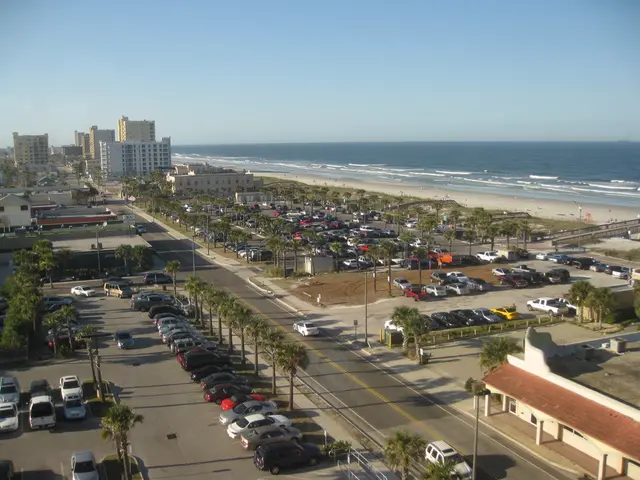Expansion of wind energy: increasing land usage for wind turbines
In a significant step towards a greener future, the German Bundestag and Bundesrat have approved the "Easter Package" for renewable energy law. This decision marks a substantial expansion of wind power and photovoltaics in the country.
The first measure is a focus on wind energy, with the federal states legally required to designate more areas for wind turbines. This move will more than double the current area used for wind power, making up 2% of the federal territory. However, coalition partner FDP resisted this original target in the bill.
Progress should also be made in the photovoltaic sector. More solar installations are planned on rooftops, balconies, roads, and rails, aiming to modernize industry and provide affordable electricity for households.
The German Renewable Energy Federation BEE has called for a swift improvement to the Easter package, proposing a fall package. BEE President Simone Peter emphasizes the need for every kilowatt-hour of renewable energy to compensate for fossil imports.
However, not all sectors have been given a perspective in the decisions. Some criticism is directed at the complicated regulation for private households, where solar installations larger than 10 kWp are treated as commercial enterprises for tax purposes.
Hydropower can continue to contribute to the energy transition and supply security. The Federal Association of German Hydropower Plants welcomes the decisions on small hydropower in the Easter package, especially the reversal of previously planned changes.
Despite the energy policy breakthrough, Peter criticizes the lack of boost for wind and solar energy. Kai Niebert, President of the Environmental Association German Nature Conservation Ring, remains incomprehensible that the original target of achieving climate neutrality in the electricity sector by 2035 was abandoned.
The goal is to increase the share of renewable energy in Germany's electricity production to at least 80 percent by 2030, currently around 50 percent. This ambitious expansion will be reinforced by legally mandated targets, such as securing at least 80% of electricity from renewables by 2030, designating 2% of the land for wind energy development, and accelerating planning and approval procedures by recognizing the expansion of renewables as an overriding public interest.
Another opportunity for more green energy lies in agrivoltaics: solar installations on fields and meadows. This innovative approach combines agriculture and renewable energy production, offering a promising solution for a sustainable future.
In the spirit of modernization and sustainability, Germany continues to push for a greener energy sector, aiming to secure its energy supply, foster industry growth, and combat climate change.
Read also:
- chaos unveiled on Clowning Street: week 63's antics from 'Two-Tier Keir' and his chaotic Labour Circus
- Racing ahead in Renewable Energy Dominance: Changzhou, Jiangsu Pushes for Worldwide Renewable Energy Ascendancy
- Feeling disoriented or perplexed.
- The potential consequences of the European Union's Clean Hydrogen strategy in relation to exacerbating our global climate emergency.








